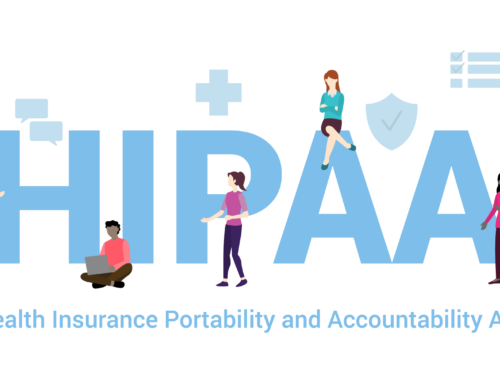Behavioral health therapists have both legal and ethical guidelines pertaining to email. Some programs do an adequate job of one, but not the other. Even worse, some do neither and yet still claim to be HIPAA compliant. While that’s probably a truthful statement, the part they’re not telling you is that their programs aren’t 100% end-to-end encrypted. In other words, they’re not safe ALL the time. If you use those programs, your email and texts can be hacked.
PSYBooks Checks all the Email/Texting Boxes.
This is what we mean:
-
100% end-to-end encryption in-motion and at-rest.
HIPAA only requires us to have secure email and texts. This translates to requiring some form of encryption but HIPAA doesn’t specify the type of encryption. This allows some applications to claim to be HIPAA compliant when their email and/or texting functions are only encrypted 80 – 85% of the time. To make matters worse, the problem is on the recipient’s end. You, as therapist, have no way of knowing which of your communications are secure and which aren’t.
A recent study1 found that 82% of email breaches reported during the past two years were caused by healthcare providers. Some of these providers were using regular unencrypted email programs like Gmail, Yahoo, Outlook and AOL. However, others were using programs they believed were encrypted that are only partially encrypted. The breaches occurred during the 15-20% of the time that these programs are NOT encrypted. An example of this type of email program is Google Workplace. Programs such as Google Workspace can be made to be 100% encrypted with add-on products like Paubox. However, that ends up being a fairly expensive option. Additionally, your emails are in Google Workspace (or another email program). They are not integrated into your patients’ charts.
Our emails and texts are already in the clients’ charts. You don’t have to worry about how to get them there. Additionally, your PSYBooks email is so secure that even our developers can’t read them.
 PSYBooks’ 100%-end-to-end encrypted email comes free with the EHR. All emails are stored in each client’s medical record and can be accessed when needed throughout the app. You do not have to pay extra; you do not have to purchase an add-on product. PSYBooks’ email and texts just ARE secure. 100% of the time.
PSYBooks’ 100%-end-to-end encrypted email comes free with the EHR. All emails are stored in each client’s medical record and can be accessed when needed throughout the app. You do not have to pay extra; you do not have to purchase an add-on product. PSYBooks’ email and texts just ARE secure. 100% of the time.
-
Entire threads are maintained in the medical record.
Email and texts are both considered part of the patient’s medical records. (And by the way, no matter what kind of mental/behavioral therapist you may be, the charts you keep on your clients are considered their “medical record” – not their “mental health record.”) To be a full and meaningful representation of the record, it’s important to keep both emails and texts your clients send to you, but also your replies. This is called “threaded” email or texting – meaning that you’re preserving the entire thread.
I’ve spoken with some very well-meaning therapists who tell me they’re copying the content from the emails or texts they receive and pasting them into Word some other word processing program. Then they upload the doc into the patient’s chart. They do this in an attempt to meet this requirement, i.e., to allow them to keep a complete copy of email and texting chains in the medical record. Similarly, others have told me they take photos of the texts or emails they receive on their phone and transfer to their chart. While these therapists should be applauded for the effort they’re putting into follow the legal and ethical mandates around this, neither of those methods is sufficient. The reason is because both phots and text documents can be so easily altered that, in a court of law, what they’re saving would not pass muster as being accurate medical records of texts and emails.
In short, emails and texts should ideally be maintained in their original form. Since they’re also supposed to be in the medical record, the best solution is to use a program like PSYBooks where email and texts already ARE in the medical record. This checks all the boxes without you having to add anything or do anything special. PSYBooks Mobile App allows you to send and receive emails and texts with patients on the go and still have records in their chart when you get back to your office.
 PSYBooks maintains all send and receive threads within its email program. Furthermore, each has a necessary time/date stamp. PSYBooks Mobile allows you to interact while on the go, knowing that all communications will sync instantaneously with your main app.
PSYBooks maintains all send and receive threads within its email program. Furthermore, each has a necessary time/date stamp. PSYBooks Mobile allows you to interact while on the go, knowing that all communications will sync instantaneously with your main app.
-
Email and texts kept for as long as you need
The final box to check is around record retention. States and disciplines vary somewhat in how long we must keep our medical records. However, we’re all required to do it. Some EHRs have pre-determined dates where they destroy previous messages. Again, since email and texts are part of the medical record, this practice would put you in non-compliance. With PSYBooks, you’re in charge of when or if email and/or texts get deleted. We don’t touch them.
 PSYBooks maintains all threads within its email and texting programs. You are in charge of deleting when the time is right. We don’t make assumptions and do that for you.
PSYBooks maintains all threads within its email and texting programs. You are in charge of deleting when the time is right. We don’t make assumptions and do that for you.
This is why we say that PSYBooks checks all the boxes for both email and texting. Make a fresh start TODAY with a program where everything is set up correctly, all within one integrated EHR.
1Litton, S. (2021). Telehealth for the Mental Health Professions: Constructive and Evidence-Based Tips for Practicing Safely, Efficiently, and Legally. Professional Resource Press.









